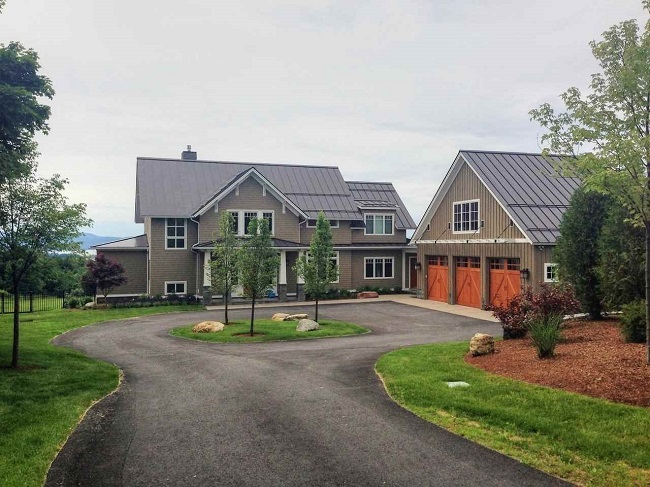
The world has gone mad; it’s no secret. Vermont may be the last bastion of sanity, and that’s no longer a secret either. This dynamic has made the business of real estate in Vermont a little bit mad too. Good people from other areas (flat lands) see our idyllic way of life, and they want it. Who can blame them? Vermont is not alone in this trend and American’s population is now more fluid than it has been over the last century. The great shuffle is on, and Americans are on the move seeking better communities. Vermont, by and large, is still small enough to have viable communities where we value helping neighbors.
Supply and Demand
Statistics show that many boomers and seniors have stayed-put through the pandemic. This hasn’t been the best of times to move for many of us. Here in Vermont, new home listings have been down nearly 30% with the advent of the pandemic; all while there has been an active flow of out-of-staters eager to move here. This disequilibrium in the market; low supply and high demand has created nothing less than a housing crisis and sent prices soaring beginning in January 2020. New listings start high, and bidding wars with dozens of offers, drive prices higher. From my perspective, I don’t see this dynamic changing anytime soon and I predict more of the same through at least 2022.
However, our market is tiny and can be hurt by outside forces. There have been times in the not so distant past where Wall Street affected Main Street, Vermont. In 2008, during the Mortgage-Backed Securities Crisis, it become impossible to get a mortgage for a while. This undoubtedly paused all real estate markets throughout the country, and to a degree, the globe. Vermont was not spared. Like today, leading up to the 2008 real estate crash, Vermont had a housing shortage. The sustained shortage helped us persevere and recover quickly. Home values held relatively steady, rebounded quickly; especially when compared to other areas of the country.
Appreciation Vs. Inflation
In real estate, we call rising prices appreciation. It’s seen by most as a positive thing, especially if you own real estate. However, when rising prices affect consumer goods, it’s called inflation, and it’s not considered a good thing by anyone. The last time we had serious inflation, like what it is now, the AMC Eagle was the hot car for Vermont winters, and you could still buy a good house for $25,000. We all know inflation is bad for the economy, and I don’t need to tell you that it hits boomers and seniors the hardest.
The Federal Reserve has made it clear that they are favoring interest rate hikes to help curb inflation. This could put an end to at least some of the exuberance of the buyers’ seeming insatiable appetite. Hopefully it’s done in a way that cools the inflation, while allowing our economy to keep moving.
What It Means to You
Inflation and high home prices are having a profound effect on all my clients right now. It’s important to know that many have made out quite well through it all. It doesn’t have to hurt you in the pocketbook, but it is imperative to be savvy. It has never been so essential to be aware of the market forces that affect you and to make sure you are getting good advice – whether it be from estate planning attorneys, investment advisors, to real estate professionals who have their finger on the beat of the market.
Ben Durant is a leading Senior Real Estate Specialist in the State of Vermont and has a passion for supporting and defending his clients through the process of downsizing, right-sizing, and relocating in Vermont. Ben lives with his wife, Amy, and three children in Williston VT. He can be reached at Ben@TransitionsVT.com or by calling directly at 802-355-6688. Visit his website at TransitionsVT.com.
Related Articles & Free Vermont Maturity Subscription

3 Tips to a Happy Downsizing of Your Home
Curious About CBD? Here’s What it Can and Cannot Do for You
How Vermont’s Unique History Created an Idyllic Place to Live






Comment here